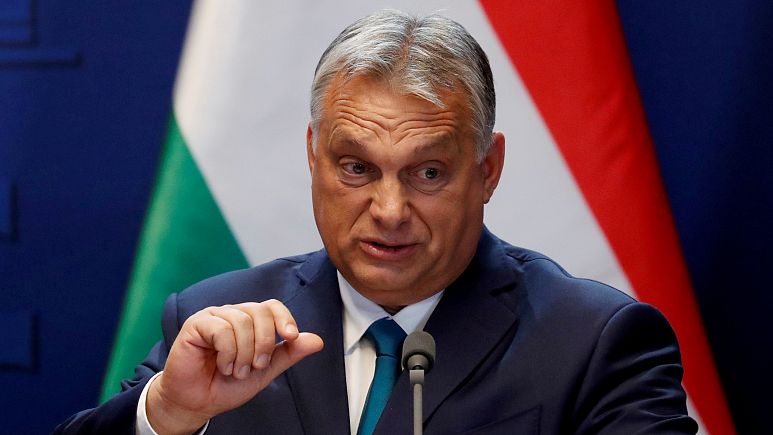
Democracy NGO casts doubts over Orban's 2018 supermajority in Hungary
by Sandor ZsirosHungary’s prime minister Viktor Orban has been in power since 2010, and last year won a supermajority for the third time - but a year-long investigation by an electoral monitoring group has cast doubts on the legitimacy of his 2018 landslide.
NGO Unhack Democracy Europe claims Orban’s Fidesz party may not have its two-thirds majority in the Hungarian parliament without manipulation and fraud.
Activists from the group interviewed 170 opposition ballot counting officers, and they heard reports of a wide range of malpractice, including vote buying, intimidation, forged logs, and voters being brought in from neighbouring countries.
Garvan Walshe, the chair of Unhack Democracy Europe told Euronews: "There has been talk of pressure coming from the centre and the pattern of incidents suggests that it was not isolated cases but a national phenomenon."
“It suggests a sustained pressure; whether this is happening out of a central direction or whether this is happening out of initiative, we don't know, but it's clearly happening."
According to Zsofia Banuta, a researcher for Unhack Democracy Europethe findings "reveal a wide range of malpractice and irregularities and outright fraud across the country including vote buying, intimidation of voters and ballot counters as well.
She added they had heard of "forged voter logs, and the bussing of voters from across the border from Serbia, Ukraine and Romania".
Their report was presented to the European Parliament in Brussels, and they recommend the EU should use their findings in the ongoing Article 7 procedure, which is looking into the rule of law in Hungary and could lead to sanctions.
Euronews has asked the Hungarian government, the national election office and Fidesz for comment.